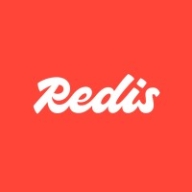

MongoDB Atlas and Redis compete in the database solutions category. MongoDB Atlas holds a strong position due to its advanced features and flexibility, while Redis is preferred for speed and caching efficiency.
Features: MongoDB Atlas offers rapid deployment, scalability, and a rich feature set with integrations like Elasticsearch. Its advanced security options and straightforward pay-as-you-go model cater to projects needing quick setup and flexibility. Redis is valued for its high-speed performance and efficiency, providing fast in-memory data storage that accelerates read and write operations, ideal for high-performance real-time data access.
Room for Improvement: MongoDB Atlas users point to UI complexity and high costs, seeking better dashboards and easier data migration. Support and training services need enhancement. Redis stands to improve in documentation and UI, making operations simpler for beginners and revisiting pricing for larger datasets and use-cases.
Ease of Deployment and Customer Service: MongoDB Atlas benefits from broad public cloud support, allowing varied deployment scenarios but shows room for improvement in support response and cost. Redis, also widely deployed in cloud environments, excels in customer service satisfaction, offering flexible deployment, though differences in support plans and costs persist.
Pricing and ROI: MongoDB Atlas employs a competitive pay-as-you-go model with potential savings over on-premises setups, though escalating support costs can impact ROI. Redis’s open-source nature ensures cost-effectiveness despite additional expenses for dedicated servers, offering value through rapid data processing and efficient caching.
I find it easy to use.
I have used them sometimes, even recently, and found the feedback to be spot on our needs.
The features of MongoDB Atlas fall short, resulting in an average rating due to higher-expectation features still lacking in its offerings.
For premium support, I would rate the support of MongoDB Atlas a nine.
It's very much scalable, and I would rate scalability a nine.
MongoDB Atlas offers sharding as a scalability feature, although it does not perform as well as Oracle.
Data migration and changes to application-side configurations are challenging due to the lack of automatic migration tools in a non-clustered legacy system.
When it comes to OLTP transactions, its performance declines.
The stability of the product is very high.
Redis is fairly stable.
Enhancing vector processing for AI capabilities would also be critical.
MongoDB Atlas should support containerization.
I would say pricing is an area where MongoDB Atlas could improve.
Data persistence and recovery face issues with compatibility across major versions, making upgrades possible but downgrades not active.
The price of MongoDB Atlas is reasonable, which is why many organizations, including mine, are opting for it.
For our service, it was around 300 to 600 euros per month, which was acceptable for our customers.
Since we use an open-source version of Redis, we do not experience any setup costs or licensing expenses.
The most valuable features of MongoDB Atlas in handling large data volumes include collection size and its NoSQL database capabilities.
MongoDB Atlas's encryption capabilities help ensure data confidentiality and integrity.
I find MongoDB Atlas highly scalable and easy to use, with very good support.
It functions similarly to a foundational building block in a larger system, enabling native integration and high functionality in core data processes.
| Product | Market Share (%) |
|---|---|
| MongoDB Atlas | 10.9% |
| Redis | 3.5% |
| Other | 85.6% |

| Company Size | Count |
|---|---|
| Small Business | 23 |
| Midsize Enterprise | 10 |
| Large Enterprise | 20 |
| Company Size | Count |
|---|---|
| Small Business | 11 |
| Midsize Enterprise | 3 |
| Large Enterprise | 8 |
MongoDB Atlas stands out with its schemaless architecture, scalability, and user-friendly design. It simplifies data management with automatic scaling and seamless integration, providing dynamic solutions for diverse industries.
MongoDB Atlas offers a cloud-based platform valued for its seamless integration capabilities and high-performance data visualization. It features advanced security options such as encryption and role-based access control alongside flexible data storage and efficient indexing. Users benefit from its robust API support and the ability to manage the platform without an extensive setup process. Feedback suggests improvements are needed in usability, query performance, security options, and third-party tool compatibility. While pricing and support services could be more economical, there is a demand for enhanced real-time monitoring and comprehensive dashboards, as well as advanced containerization and scalability options supporting complex database structures.
What are the key features of MongoDB Atlas?
What benefits should you consider in a solution like MongoDB Atlas?
In healthcare and finance, MongoDB Atlas manages payment transactions and facilitates real-time analytics, powering SaaS solutions and storing large volumes of user data. It enhances scalability, performance, and security for cloud hosting, IoT integrations, and Node.js environments, widely favored for its flexibility and capability to support microservices.
Redis offers high-speed, in-memory storage, renowned for real-time performance. It supports quick data retrieval and is used commonly in applications like analytics and gaming.
Renowned for real-time performance, Redis delivers high-speed in-memory storage, making it a favorite for applications needing quick data retrieval. Its diverse data structures and caching capabilities support a broad array of use cases, including analytics and gaming. Redis ensures robust scalability with master-slave replication and clustering, while its publish/subscribe pattern renders it reliable for event-driven applications. The solution integrates smoothly with existing systems, minimizing performance tuning needs. Although documentation on scalability and security could be improved, Redis remains cost-effective and stable, commonly utilized in cloud environments. Enhancing integration with cloud services like AWS and Google Cloud and refining GUI may improve usability.
What are the key features of Redis?Redis finds application across industries for tasks like caching to improve application performance and speed, minimizing database load. It enables real-time processing for session storage, push notifications, and analytics. As a messaging platform, Redis handles high traffic and supports replication and clustering for cross-platform scalability.
We monitor all Managed NoSQL Databases reviews to prevent fraudulent reviews and keep review quality high. We do not post reviews by company employees or direct competitors. We validate each review for authenticity via cross-reference with LinkedIn, and personal follow-up with the reviewer when necessary.